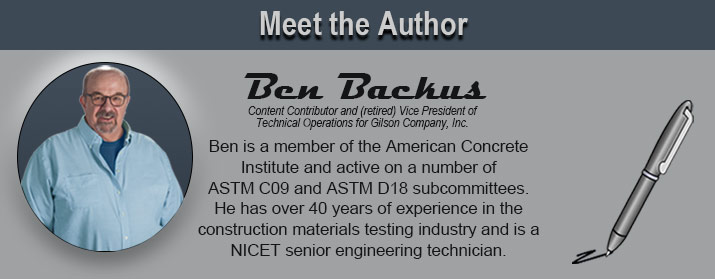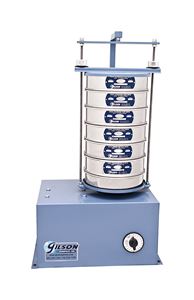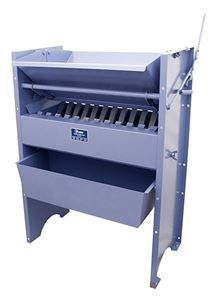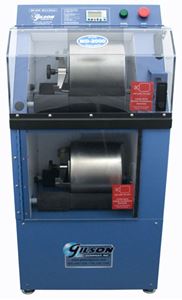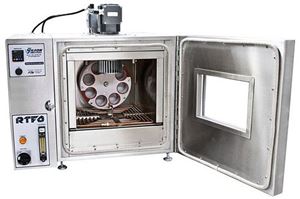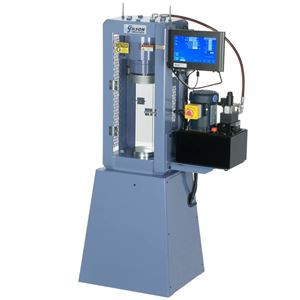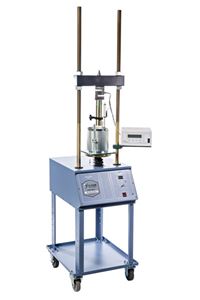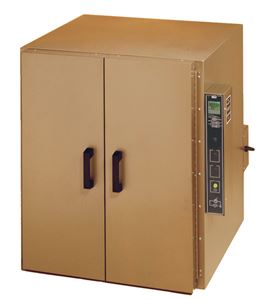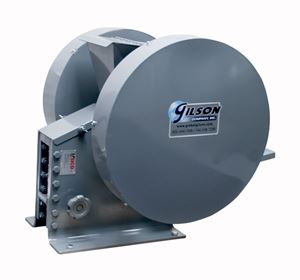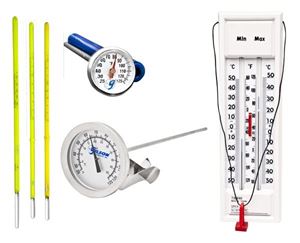
Whether working in the lab or field, soil/geotechnical professionals can advance their careers by holding a related technician certification. This is the fifth in Gilson's series on preparing for a technician certification exam and is geared to soil/geotechnical technician certifications for professionals in the highway and infrastructure construction industry. Bear in mind that while there are also soil or soil science technician certifications available for the agriculture or environmental science industries, information from such sites generally won’t pertain to preparing for a soil technician certification in construction materials testing.
Dishing the Dirt on Various Soil Technician Certifications
You don't have to dig too deep to find industry-recognized agencies that offer a wealth of useful study and training resources to help prepare for the written and/or performance exams. There are numerous entities at the state, regional and national levels to take you step-by-step through the certification process. The chart below highlights some of the existing certifications available at the national level through ACI and NICET. ASTM D5255 Standard Practice for Certification of Personnel Engaged in the Testing of Soil and Rock includes relevant criteria for establishing a soil technician certification program.
| Agency | Designation | Experience | Requirements | Recertification |
|---|---|---|---|---|
| American Concrete Institute (ACI) | Aggregate/Soils: Base Testing Technician | Proven knowledge and ability to perform, record, and report results of basic field and laboratory procedures for aggregates and soils. Also, have strong knowledge of related AASHTO / ASTM standards listed (see designation link for specifics). | A passing grade on the written exam and complete performance exam. | Every 5 years; must take and pass written and performance exams. |
| NICET | Soils Certification Level I : Technician Trainee | Requires experience, knowledge, and basic skills for working in soils. Works under the direct supervision and is familiar with relevant industry standards, sampling, lab tests such as proctor, Atterberg limits, field/site testing, and more as described online. | Must provide performance verification and pass the required exam(s). | Every 3 years; Recertification is based on job-related activities in the prior 3 years. |
NICET | Soils Certification Level II: | Must be sufficiently skilled with a higher level of knowledge and experience to work more independently than Level I Technicians, more comprehensive information on responsibilities is provided online. | Level I certification, provide performance verification and pass the required exam(s). | Every 3 years; Recertification is based on job-related activities in the prior 3 years. |
NICET | Soils Certification Level III: | Have the knowledge, experience, and skills needed to work without direct supervision, under the guidance of a registered professional engineer, more information is available outlined online. | Levels I & II certifications, provide performance verification, pass the required exam(s), and personal recommendations. | Every 3 years; Recertification is based on job-related activities in the prior 3 years. |
NICET | Soils Certification | Have the knowledge, experience, and skills needed to serve as a project manager under the guidance of a registered professional engineer, more information can be found online. | Level I, II & III certifications, provide performance verification, pass the required exam(s), personal recommendation, and major project write-up. | Every 3 years; Recertification is based on job-related activities in the prior 3 years. |
NICET changed its Work Element (WE) certification format to a standard model Computer-Based Testing (CBT) in 2017.
Other bits of useful information regarding the ACI or NICET soil technician certification process include:
- Testing Venues... both provide an online tool to find a local or regional test center that offers certification examinations.
- Test Materials... each agency links to internal resources with reference and/or study materials related to the soil technician certification.
- Examination... ACI has a two-hour open-book written examination and a closed-book performance examination to demonstrate proficiency with required standards. NICET's written examinations are generally closed-book, with no performance test. However, a Performance Verification Form from a supervisor is required as part of the NICET application process.
 Photo courtesy of ACI
Photo courtesy of ACIFinding Regional or State Certification Programs
There are four large regional certification training and testing programs throughout the country that offer a range of soil or geotechnical technician certifications, either under their umbrella or with their respective state DOT and/or other partners. A fifth regional program that served southeastern states appears to be inactive at this time.
- NorthEast Transportation Training and Certification Programs (NETTCP) serves Connecticut, Massachusetts, Maine, New Hampshire, New York, Rhode Island, and Vermont. NETTCP offers two soil programs certifications:
- Soils & Aggregate Inspector – a three-day course, and Soils & Aggregate Lab Technician – a four-day course. Both programs offer classroom and laboratory training and an examination, which includes written and performance components. The links above take you to pages with specifics on course demographics, prerequisites, outlines, exams, and recertification. Course study manuals are included with program registration. NETTCP also offers an Interim Certification on a one-season only basis.
- The Mid-Atlantic Region Technician Certification Program (MARTCP) includes New Jersey, Pennsylvania, Delaware, Virginia, West Virginia, Maryland, and the District of Columbia. MARTCP also offers a range of technician certifications including Soils and Aggregates Compaction Technician, with all pertinent information for the regional partners housed within the Maryland DOT State Highway Administration.
- The Western Alliance for Quality Transportation Construction (WAQTC) is affiliated with Alaska, Colorado, Hawaii, Idaho, Montana, New Mexico, Oregon, Utah, Washington, and the Western and Central Federal Lands Highway Divisions. WAQTC provides technical training and certification for transportation-related materials testing. Simply click on the state name and link it to its DOT.
Below are some examples of what state DOTs can offer – this may guide you in what to look for when exploring further within your region.
- The Tennessee Department of Transportation offers Field Operations Training for many technician certifications, including soil and aggregates. Individual pages can be accessed from the link above that provides information on the specific testing process, regional testing locations and dates, course description and scope, prerequisites, and more.
- North Carolina DOT has a page that lists its business partners for related materials testing, including GeoMaterials laboratory training schools, technical trainers by name and location, DOT staff contacts, and more.
- The Arizona DOT, through the Arizona Technical Testing Institute (ATTI), offers two soils-related technician certifications. The Field Technician Certification is broad-based and covers sampling in the areas of soil, aggregates, asphaltic concrete, and asphalt binder sampling. It also offers a Laboratory Soils/Aggregate Technician Certification specifically designed for laboratory testing of soils and aggregates.
Gilson Is Here to Help
Contact our testing experts for more information or to discuss your testing application.
Testing Resources
Standard Test Methods, Specifications, and Practices
Individual test methods and specifications referenced in our product descriptions, blog articles, and videos are available for review or purchase from the professional organizations noted.
- ASTM International (American Society for Testing and Materials)
- AASHTO (American Association of State Highway and Transportation Officials)
- ACI (American Concrete Institute)
- State DOTs (Departments of Transportation)
- ISO (International Organization for Standardization)
- BS (British Standards)
- EN (European Standards)
